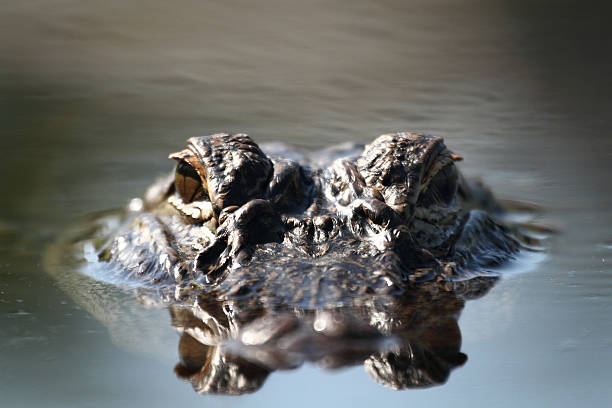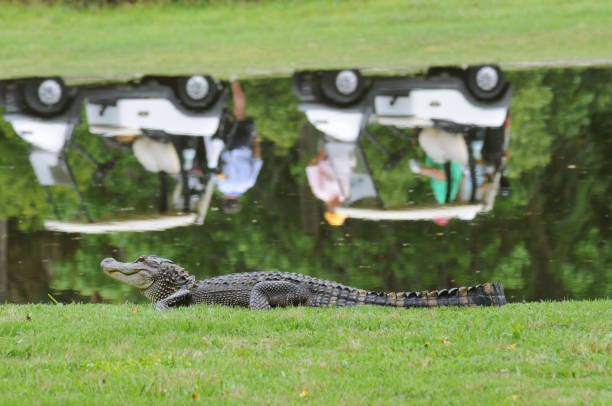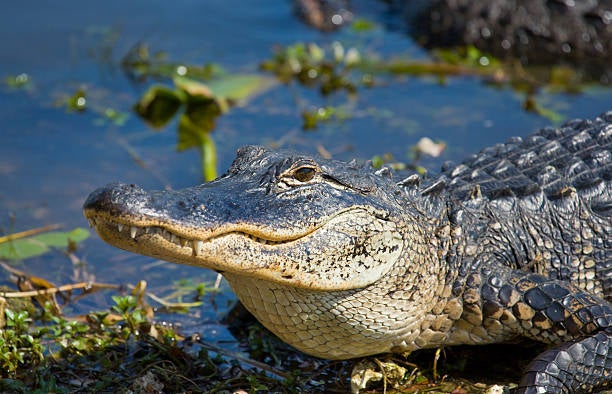Alligator attacks are rare, but when they happen, they are usually fatal and end up making the front pages of news under a blaring headline.
The crocodilians are certainly scary looking with that prehistoric looking grin and videos showing them move from a loping gait to displaying the ability to run almost as fast as Usain Bolt.
The University of Florida recently published a study that places the blame of what we call “alligator attacks” on the humans that find themselves on the business end of that mouth full of teeth and an average bite estimated at 2,000 pounds per square inch (PSI).
That bite is the equivalent of that of three lions.
Mark Teshera, lead author of the study and a biology professor at Center College, says his team looked at a variety of variables and came to determine that alligators in the wild do not “attack” humans as, just as with virtually every snake on the planet except the anaconda, humans are not on their menu of prey.

“It was important to create a ranking system for risky human behaviors because it showed that the overwhelming majority of bites stemmed from some level of humans engaging in risky behavior in places where alligators live. Therefore, we should not call these encounters ‘attacks’,” Teshera said.
The study makes the conclusion that much like hikers entering the mountainous wilderness where bears are known to call home or swimming in waters known to be inhabited by sharks, humans should “assume some level of responsibility and attentiveness.”
“By examining these risk categories, and some of the activities people were involved in immediately preceding a bite, we are hoping that it reminds the public how crucial it is to maintain a situational awareness in alligator country, which will hopefully decrease future negative encounters,” said Teshera.
According to David Quebedeaux, forest ranger with the U.S. Army Corps of Engineers, says that people will routinely swim in areas where signs clearly warn of alligators nearby, thinking that since they do not see an alligator, they are safe.
“Alligators are drawn to anything splashing around in the water and they are skilled at stealth. By the time one gets its jaws on you, it’s not like a shark that will bite once and then determine what it is they have bitten, alligators go for the kill,” Quebedeaux said.
Many fatal interactions have occurred in areas such as Hilton Head, which, for decades, has been a draw for retirees. In these scenarios, most have occurred in retirement colonies known for golf courses and other outdoor amenities where the alligators existed before the developments were built.

In those cases, it has been people walking small dogs near a pond and, to an alligator, such a small animal is fair game and they don’t necessarily care that the animal is tethered to a human.
Quebedeaux says he grew up in alligator country and was trained from a young age to respect the creatures.
“I have learned two things, if there is a sign warning of alligators, you simply do not go in the water. The second thing I have learned is that alligators taste a lot like dinosaur,” Quebedeaux said.
Considering both yard birds and ‘gators are descendants of dinosaurs, that comment may not be off the mark.
The authors of the study say this is the time of year when alligators are most active. Mating season, which runs from April through July, means that the creatures are on the move and present more territorial behavior, “making human awareness and safe practices even more essential.”
Scott Hudson is the Senior Investigative Reporter, Editorial Page Editor and weekly columnist for The Augusta Press. Reach him at scott@theaugustapress.com










